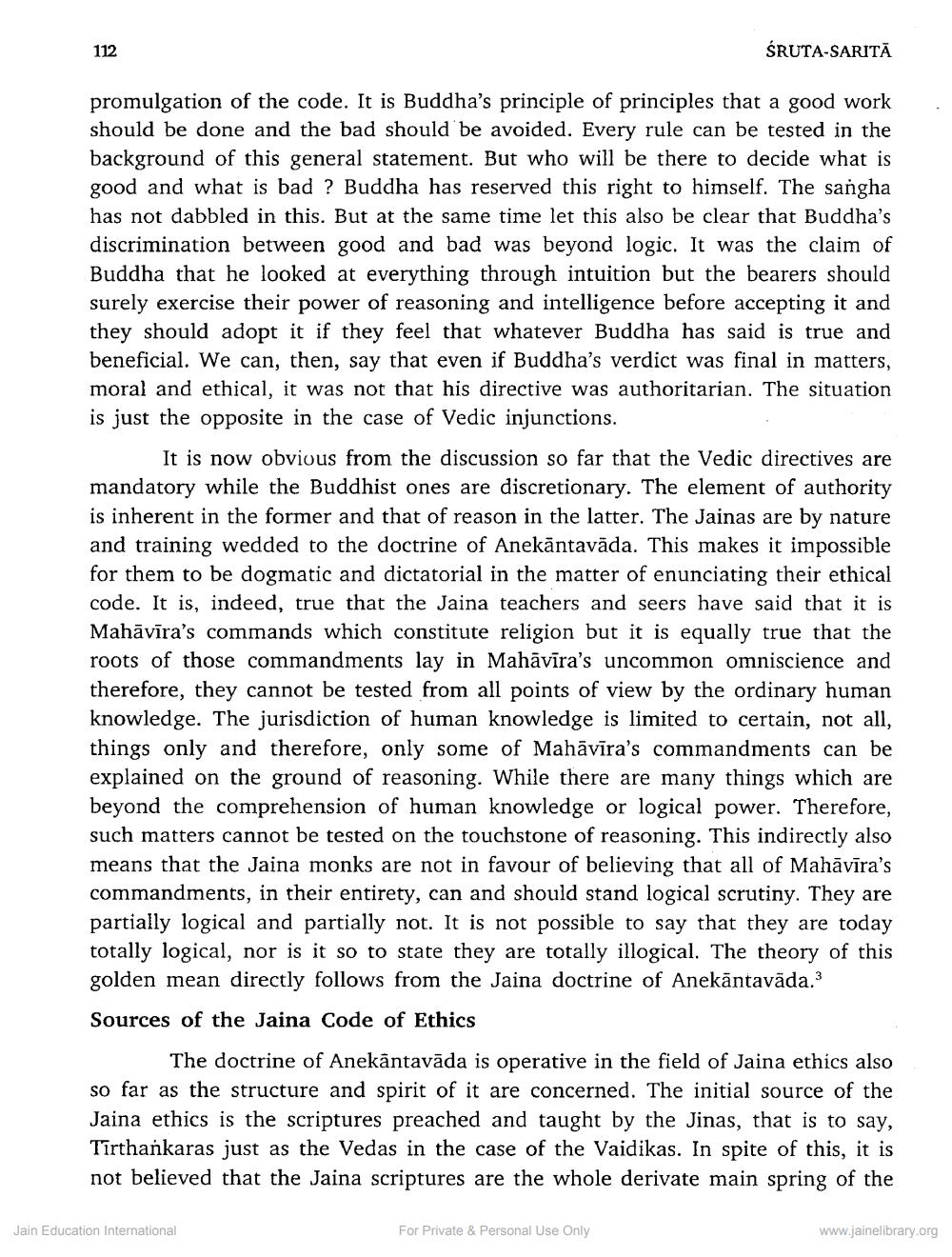________________
112
ŚRUTA-SARITĀ
promulgation of the code. It is Buddha's principle of principles that a good work should be done and the bad should be avoided. Every rule can be tested in the background of this general statement. But who will be there to decide what is good and what is bad ? Buddha has reserved this right to himself. The sangha has not dabbled in this. But at the same time let this also be clear that Buddha's discrimination between good and bad was beyond logic. It was the claim of Buddha that he looked at everything through intuition but the bearers should surely exercise their power of reasoning and intelligence before accepting it and they should adopt it if they feel that whatever Buddha has said is true and beneficial. We can, then, say that even if Buddha's verdict was final in matters, moral and ethical, it was not that his directive was authoritarian. The situation is just the opposite in the case of Vedic injunctions.
It is now obvious from the discussion so far that the Vedic directives are mandatory while the Buddhist ones are discretionary. The element of authority is inherent in the former and that of reason in the latter. The Jainas are by nature and training wedded to the doctrine of Anekāntavāda. This makes it impossible for them to be dogmatic and dictatorial in the matter of enunciating their ethical code. It is, indeed, true that the Jaina teachers and seers have said that it is Mahāvīra's commands which constitute religion but it is equally true that the roots of those commandments lay in Mahāvīra's uncommon omniscience and therefore, they cannot be tested from all points of view by the ordinary human knowledge. The jurisdiction of human knowledge is limited to certain, not all, things only and therefore, only some of Mahāvīra's commandments can be explained on the ground of reasoning. While there are many things which are beyond the comprehension of human knowledge or logical power. Therefore, such matters cannot be tested on the touchstone of reasoning. This indirectly also means that the Jaina monks are not in favour of believing that all of Mahāvīra's commandments, in their entirety, can and should stand logical scrutiny. They are partially logical and partially not. It is not possible to say that they are today totally logical, nor is it so to state they are totally illogical. The theory of this golden mean directly follows from the Jaina doctrine of Anekāntavāda.? Sources of the Jaina Code of Ethics
The doctrine of Anekāntavāda is operative in the field of Jaina ethics also so far as the structure and spirit of it are concerned. The initial source of the Jaina ethics is the scriptures preached and taught by the Jinas, that is to say, Tīrthańkaras just as the Vedas in the case of the Vaidikas. In spite of this, it is not believed that the Jaina scriptures are the whole derivate main spring of the
Jain Education International
For Private & Personal Use Only
www.jainelibrary.org




